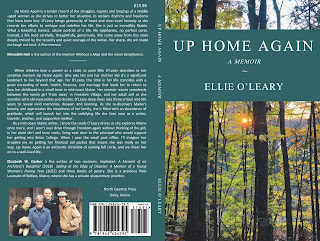Ghazal
The ghazal is a Persian form whose popularity may have peaked over a thousand years ago, yet it remains popular today. There are a few aspects of the form that are in all (or at least most) modern ghazals. Ghazals talk about love and wine and do so in (usually) five or at least an uneven number of couplets. The last word of the second line is the same in all of the couplets. In the final couplet, the poets “signs their name” or makes reference to their name or their identity somehow. The form is so old though that many variations have sprung up.
Poets from Rumi and Hafiz to Goethe and Bly have been
writing or translating ghazals. In translation some of the “rules” stated above
are less than evident, if at all. An excellent resource, with greater depth
than I’ve given here is Ghazal – Poetry Forms
(poetscollective.org). The modern champion of the ghazal has been Aga
Shahid Ali especially in his book Rooms Are Never Finished. (W.W. Norton & Company, Inc. , 2002) More
at this link: Ghazal
by Agha Shahid Ali | Poetry Foundation
From Rumi:
The
sky has never seen such a moon, not even in its dreams,
No water could ever extinguish the fire of its light,
Look
at my body, and look at my soul
From his cup of love, my soul is drunk, my body ruined
The
tavern keeper became my heart’s companion
Love turned my blood into wine, and burned my heart
As my
eyes fill with the image of his face, a voice resounds,
“Well done, cup. Excellent, wine.”
Looking
into the ocean of love
My heart suddenly dove in, calling, “Find me!”
The
face of the sun is Shams, the glory of Tabriz,
Our hearts, like clouds, trail after him.
another
from Rumi:
If
there’s no trace of love in his heart
Cover him like an angry cloud over the moon
Dry tree,
don’t grow in that garden,
Poor thing, left without the shade of a tree
Even
if you’re a pearl, don’t separate from this love,
Love is your father and your family
In
the world of lovers, a deadly sickness strikes
Each day more painful than the last
If
you see the blush of love in someone’s face
Know that he is no longer merely mortal
If
you see a reed-flute, bent by love, grab it
Squeeze the reed until you taste the sweetest sugar
Shams
of Tabriz lures you into his trap
Don’t look left or right, you can’t resist.
Here’s
my own attempt. I used the word “word” as a placeholder while I was
constructing the ghazal and ended up using it as the word at the end of each
couplet. To say this is an attempt or a work in progress may be paying it a
compliment. My name is in there, though. Do you see it?
The Word in Ghazal
The
love we give out is heard in the word.
Intent is blurred without true word.
Rejoice in your wine or in your spirit
Hear it from Lilee who is just a bit

Comments
Post a Comment